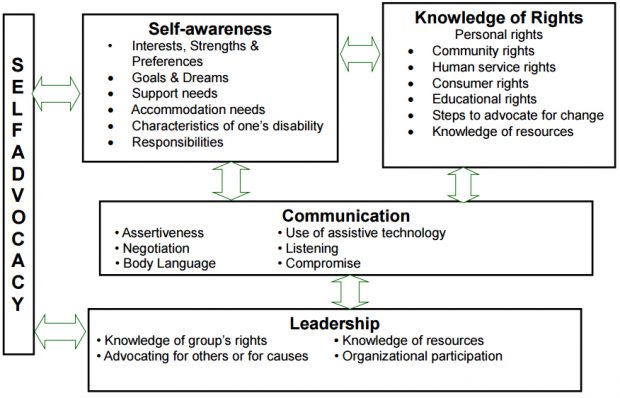Self-Advocacy
Self-advocacy involves being able to identify your needs, understanding your rights and communicating effectively. In the early years of your child’s life, you as a parent have an important role in advocating for the rights of your child with a brain injury. As your child grows older, it is important that your child learn self-advocacy skills so he/she can advocate for needs when you are not around.
Self-Advocacy Characteristics
From Independent Living Research Utilization
General ResourcesBy the National Collaborative on Workforce and Disability (NCWD)
- What is Self-Advocacy, and Why is it Important?
By Center for Parent Information and Resources - Advocacy Tool kit: Skills and Strategies for Effective and Peer Advocacy
By Brainline - Self-Advocacy for Independent Life (S.A.I.L.)
A Project of the Brain Injury Alliance of Colorado
Identifying your Needs
- Speak Up! Self-Advocacy Worksheet
From NYC Department of Education - My Personal Self Advocacy Plan
A worksheet from Connecticut State Department of Education (click here to view document in its entirety)
Worksheet 1, Worksheet 2, Worksheet 3
Communication Skills
- Strategies to Improve Communication After a Brain Injury
By Brain Injury Partners
